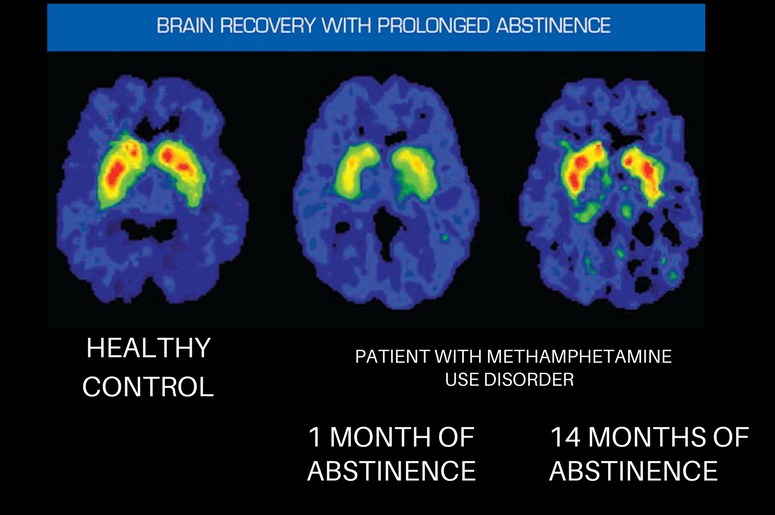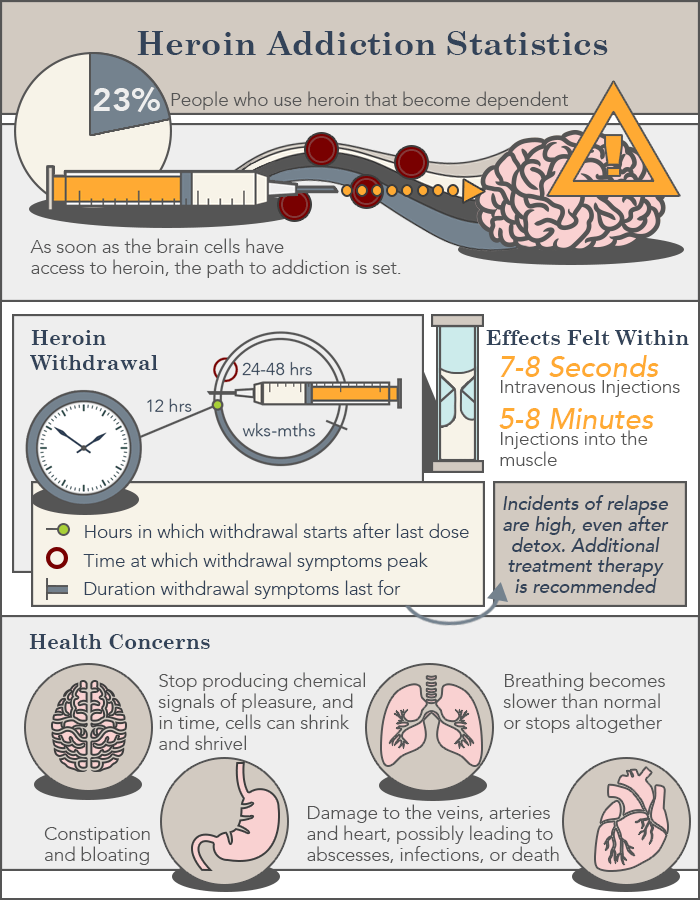It is as if a limit has actually been crossed. Very few people appear able to successfully go back to occasional use after having actually been truly addicted. Sadly, we do not yet have a clear biological or behavioral marker of that transition from voluntary substance abuse to dependency. However, a body of clinical evidence is quickly developing that points to a range of cellular and molecular changes in specific brain circuits. It needs long-lasting management. The strength of that management depends on an individual's experience and history of dependency. It might include a lot of management, however it might involve very little management, too, in the long run. Nobody stated dependency was a simple concept, but we have actually gone through the basic actions of comprehending why addiction is an illness.
In the brain,. It makes the addicted person feel an intense need to use drugs or alcohol, and it seriously restricts the capability to discover pleasure in other healthy activities. Thankfully, this is not a long-term condition. even early death. But it doesn't need to. With professional treatment and long-term personal management of the illness, a person in recovery can have a typical life.
It cleans up confusion, points the way toward recovery, and, above all, shows us that there is always expect living a better life.
As a young scientist in the 1980s, I utilized then-new imaging innovations to take a look at the brains of individuals with drug dependencies and, for comparison, people without drug issues. As we began to track and document these unique images of the brain, my colleagues and I realized that these images supplied the very https://deansydq068.skyrock.com/3340331104-Where-To-Get-Help-For-Drug-Addiction-Can-Be-Fun-For-Everyone.html first evidence in humans that there were changes in the brains of addicted individuals that might explain the compulsive nature of their drug taking.
The Best Article source Guide To How To Treat Drug Addiction At Home
Alan Leshner, who was the Director of the National Institute on Drug Abuse at the time, immediately understood the ramifications of those findings, and it assisted solidify the concept of addiction as a brain disease. Over the past 3 decades, a scientific agreement has emerged that dependency is a chronic but treatable medical condition involving changes to circuits associated with benefit, stress, and self-control; this has actually assisted scientists determine neurobiological irregularities that can be targeted with healing intervention. how to get help for drug addiction.
Educated Americans no longer view dependency as an ethical failing, and a growing number of policymakers are recognizing that punishment is an ineffective and improper tool for attending to an individual's drug problems. Treatment is what is needed. Thankfully, efficient medications are offered to assist in the treatment of opioid use disorders.
They conserve lives. Yet the medical model of dependency as a brain disorder or disease has its singing critics - why drug addiction is not a disease. Some claim that viewing addiction in this manner decreases its crucial social and ecological causes, as though stating dependency is a disorder of brain circuits implies that social tensions like loneliness, poverty, violence, and other psychological and ecological factors do not play an essential function.
There are neurobiological substrates for whatever we believe, feel, and do; and the structure and function of the brain are shaped by environments and behaviors, in addition to by genetics, hormonal agents, age, and other biological elements. It is the complicated interactions among these factors that underlie disorders like addiction as well as the capability to recover from them.
The Basic Principles Of How To Help A Loved One With Drug Addiction
Critics of the brain disorder model likewise sometimes argue that it places excessive focus on benefit and self-discipline circuits in the brain, overlooking the crucial function played by discovering. They suggest that dependency is not fundamentally various from other experiences that redirect our fundamental inspirational systems and as a result "change the brain." The Click here for more example of falling in love is sometimes cited.
As talked about by Maia Szalavitz in Unbroken Brain, it remains in the grip of lovewhether romantic love or love for a childthat people may bypass other healthy goals, endure difficulties, break the law, or otherwise go to the ends of the earth to be with and secure the object of their affection.
Our reward and self-discipline circuits evolved exactly to enable us to discover new, crucial, healthy benefits, remember them, and pursue them single-mindedly; drugs are in some cases said to "pirate" those circuits (is most likely to be successfully treated by). Metaphors brighten intricacies at the expense of concealing subtleties, but the metaphor of hijacking stays pretty apt: The highly potent drugs presently claiming so lots of lives, such as heroin and fentanyl, did not exist for the majority of our evolutionary history.

Because they help with the exact same knowing procedures as natural benefits, drugs quickly trick that circuitry into believing they are more crucial than natural rewards like food, sex, or parenting. What the brain disorder model, within the larger biopsychosocial structure, records better than other modelssuch as those that focus on addiction as a learned behavioris the essential dimension of interindividual biological variability that makes some people more susceptible than others to this hijacking.
Which Of The Following Is Not A Possible Sign Of A Drug Addiction? Can Be Fun For Everyone
Research studies are determining gene variants that provide durability or danger for addiction, as well as ecological factors in early life that affect that threat. This knowledge will make it possible for advancement of exactly targeted prevention and treatment techniques, just as it is enabling the bigger domain of individualized medicine. Some critics likewise explain, correctly, that a considerable portion of individuals who do establish dependencies eventually recover without medical treatment.
We still do not comprehend all the factors that make some people much better able to recover than others or the neurobiological systems that support recoverythese are necessary locations for research. But when individuals recuperate from addiction on their own, it is frequently since reliable treatment has actually not been easily offered or cost effective, or the person has actually not sought it out; and far too many people do not recover without assistance, or never ever get the possibility to recuperate.
To say that since some individuals recuperate from dependency unaided we must not think of it as an illness or condition would be clinically irresponsible. Larger access to medical treatmentespecially medications for opioid usage disordersas well as motivating individuals with compound use disorders to seek treatment are absolutely necessary to prevent these still-escalating numbers of deaths, not to mention decrease the bigger devastation of lives, professions, and families brought on by dependency.
We will never ever have the ability to address dependency without being able to discuss and resolve the myriad elements that add to itbiological, psychological, behavioral, societal, financial, etc. However viewing it as a treatable medical problem from which people can and do recuperate is essential for allowing a public-healthfocused response that makes sure access to efficient treatments and lessens the stigma surrounding a condition that afflicts almost 10 percent of Americans at some point in their lives.
